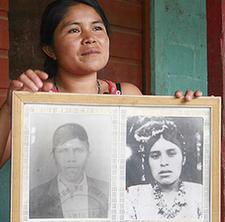Peru: Sendero pledges more attacks; army uses child soldiers?
The commander of a remnant faction of Peru’s Shining Path guerilla movement pledged more attacks after their 11th deadly ambush this year. “We will fight militarily those who defend imperialism and the government, and they are the armed forces and… Read morePeru: Sendero pledges more attacks; army uses child soldiers?



